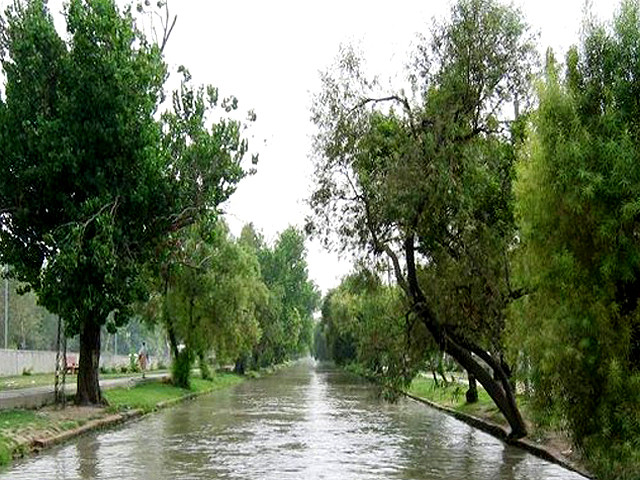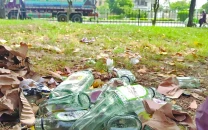Failing the environment
Five programmes falling under the ABCD, which was started in 2009, have failed to achieve their objectives.

These programmes include Industrial Environmental Improvement Plan, Industrial Survey Programme, Pakistan Green Seal Programme, Environmental Friendly Brick Manufacturing Programme, and Vehicular Pollution Control Programme.
Pakistan Environmental Protection Agency, according to its website, is an attached department of the Ministry of Environment and is responsible for implementing the Pakistan Environmental Protection Act 1997.
According to ministry of environment officials, the projects failed to achieve their objectives because the ministry “could not create or maintain adequate knowledge base to support decision making”.
A senior official of the ministry, on condition of anonymity, said that a sum of Rs16.347million was allocated to these failed projects.
The situation in the country, according to this official, is dire as approximately 155,915 acres of forest lands all over the country have either been transferred or leased out to the private sector on nominal rents.
Secretary Environment Javaid Malik told The Express Tribune that he was “unaware of the current status of these projects”.
Deputy General (DG) Environment Protection Department Punjab Dr Shagufta Shah Jahan said that under the environment ministry’s ABCD project, Program 25/75 Industrial Environmental Improvement Plan –which aimed to reduce pollution by cutting deals with individual industrial units– failed because the government did not pursue their owners.
“More than 50 per cent of registered industrial units are violating the National Environmental Quality Standards by not reporting their data, which is required to monitor their performances,” he added.
Jahan said that Pakistan Green Seal Program failed as the ministry “did not even try to implement the programme”.
Meanwhile, the Industrial Survey Program, according to Jahan, also failed because the ministry of environment conducted only one of the 16 surveys planned all over the country.
The Environmental Friendly Brick Manufacturing Programme also failed as Pak-EPA was unable to identify environmentally safe brick-manufacturing technologies, according to DG Pak-EPA Asif Shujja Khan.
Khan added that Vehicular Pollution Control programme, also initiated under ABCD project, could not achieve its targets as no promotional activities were undertaken for the use of catalytic converters in petrol vehicles.
These catalytic converters are installed in motor cars to reduce the emission of carbon monoxide, nitrogen oxides and hydrocarbons by up to 90 per cent, and to reduce sulphur content produced by motor diesel fuel by up to 99.95 per cent, he said.
Former deputy director of the United Nations (UN) environment programme, Shafqat Kakakhel, said that according to Global Forest Resources Assessment 2005, Pakistan is losing Rs126.815billion per annum due to illegal removal of trees.
Quoting figures from Pakistan Strategic Country Environmental Assessment Report of the World Bank, he said that land covered by forests in Pakistan is declining every year.
“At present, the country’s forest cover is less than 2 per cent, which has declined from 2.47 per cent in 2005,” said Kakakhel.
Published in The Express Tribune, August 23rd, 2010.



















COMMENTS
Comments are moderated and generally will be posted if they are on-topic and not abusive.
For more information, please see our Comments FAQ